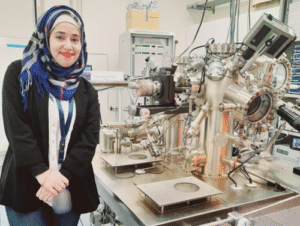Saturday, 18 October 2025
Inside Agilent’s Strategy to Make India Global Benchmark in Food Testing
Nandakumar Kalathil, Country General Manager, Agilent Technologies India As India strengthens its position as a global leader in agricultural exports, ensuring food safety and regulatory compliance has never been more…

Nandakumar Kalathil, Country General Manager, Agilent Technologies India
As India strengthens its position as a global leader in agricultural exports, ensuring food safety and regulatory compliance has never been more critical. To address these challenges, Agilent Technologies has expanded its strategic collaboration with the ICAR–National Research Centre for Grapes (NRCG), focusing on advanced analytical solutions for pesticide residue, fumigant, PFAS, and antibiotic testing.
In an exclusive interaction with NUFFOODS Spectrum, Nandakumar Kalathil, Country General Manager, Agilent Technologies India, shares how this partnership supports India’s exporters in meeting stringent international safety norms, drives sustainability in food testing, and builds long-term capacity among food safety professionals.
What motivated Agilent to expand its partnership with ICAR-NRCG at this time, and how does it align with Agilent’s broader vision for food safety in India?
Agilent expanded its strategic collaboration with ICAR-National Research Centre for Grapes (NRCG) in response to the increasing demand for reliable, scalable, and regulation-ready food testing solutions. With India’s agricultural exports—particularly grapes—gaining global traction, the need for robust analytical frameworks has intensified. This collaboration aligns with Agilent’s global mission to advance the quality of life by ensuring food safety through analytical science and regulatory engagement. The partnership reflects Agilent’s commitment to building future-ready food safety systems that support India’s role as a trusted global exporter. It also complements Agilent’s broader efforts in developing validated workflows, promoting regulatory compliance, and fostering stakeholder empowerment across the food supply chain.
Could you highlight the specific analytical solutions or innovations Agilent is introducing through this collaboration, and how they address challenges in pesticide residue and fumigant testing?
Agilent and NRCG are co-developing targeted analytical workflows for pesticide residue and fumigant analysis using Agilent’s advanced GC-MS/MS and LC-MS/MS platforms. These multi-class, multi-residue methods are designed to meet stringent international standards guidelines. These innovations directly address the challenges of complex food matrices, coeluting interferences, and regulatory compliance, making them ideal for both domestic and export-oriented testing. The workflows incorporate industry-standard sample preparation techniques and are optimized for trace-level quantification, matrix-specific challenges, and regulatory compliance. These innovations directly address the complexities of food safety testing in India’s export landscape. In addition to pesticide and fumigant testing, the collaboration is also focused on developing robust workflows for PFAS and antibiotic residue analysis, which are critical for meeting emerging global regulations and export requirements.
India’s grape exports heavily rely on meeting strict international safety norms. How will Agilent’s technologies and workflows help Indian exporters maintain compliance and strengthen their presence in global markets?
The validated workflows developed through the Agilent-NRCG partnership are tailored to support Indian grape exporters in meeting international safety norms set by regulatory bodies such as APEDA, FSSAI, and the European Union. These workflows provide rapid and accurate detection of pesticide residues and fumigants, ensuring compliance with maximum residue limits (MRLs). By leveraging Agilent’s global expertise and NRCG’s research leadership, the collaboration enhances transparency and trust in quality assurance. The inclusion of PFAS and antibiotic testing capabilities further strengthens exporters’ ability to meet evolving import regulations, especially in regions where these contaminants are now part of mandatory screening protocols.
You have emphasized sustainability and precision in food testing. How does Agilent ensure that its solutions are both environmentally responsible and scalable for widespread adoption?
Agilent’s sustainability strategy is embedded in its product design and lab operations. Agilent’s expanded portfolio of My Green Lab ACT-labeled instruments now accounts for 40 per cent of its instrument revenue. Agilent also operates industry’s largest instrument recycling and refurbishment program, with over 5,400 instruments refurbished in a single year. Additionally, Agilent has implemented sustainable packaging solutions and digital labeling systems that significantly reduce waste. Agilent’s PFAS testing kits also feature PFAS-free consumables and cartridges, minimizing background contamination and supporting environmentally responsible testing practices.
The partnership also includes workshops, webinars, and technical publications. How is Agilent working to build long-term capacity among India’s food safety professionals through these initiatives?
Agilent and NRCG have launched a series of joint workshops, webinars, and technical publications to promote best practices in analytical testing and regulatory compliance. These initiatives are designed to foster knowledge exchange and build long-term capacity among food safety professionals. By offering validated methodologies and engaging with both scientific and regulatory communities, the partnership supports the adoption of advanced testing protocols across government and commercial laboratories. Topics such as PFAS detection in food matrices and antibiotic residue analysis are also being covered in these knowledge-sharing platforms, ensuring professionals stay ahead of emerging regulatory trends.
Beyond grapes, does Agilent see opportunities to expand similar collaboration models into other crop categories or broader areas of food safety testing in India?
While grapes are the current focus, Agilent’s collaboration model is scalable and adaptable to other high-value crops such as pomegranates, mangoes, spices, and cereals. The success of the NRCG partnership provides a blueprint for future engagements with other ICAR institutes and commodity boards. Agilent’s expertise in PFAS, polar pesticides, and antibiotic residue testing positions it well to support broader food safety initiatives across India’s diverse agricultural landscape.
Shraddha Warde
shraddha.warde@mmactiv.com
Technology
Julius Meinl introduces industrially compostable capsules
Oct 17, 2025 | Beverages
Engineering Nutrition: Marico’s R&D Push to Redefine Everyday Wellness
Oct 17, 2025 | Food
Quantum leap to tackle Australian food security and student wellbeing
Oct 16, 2025 | Australia
Food Testing
ADM advances quality capabilities with opening of new Central Milling Laboratory
Oct 16, 2025 | Company News
South Australia now tomato virus free
Oct 13, 2025 | Australia
Inside Agilent’s Strategy to Make India Global Benchmark in Food Testing
Oct 10, 2025 | Food Safety and Testing
More Popular
South Africa’s Premier Group to acquire RFG Holdings
Oct 17, 2025 | Africa
Julius Meinl introduces industrially compostable capsules
Oct 17, 2025 | Beverages
Nestlé accelerates growth strategy with RIG-led investments and cost optimisation plans
Oct 17, 2025 | Company News






